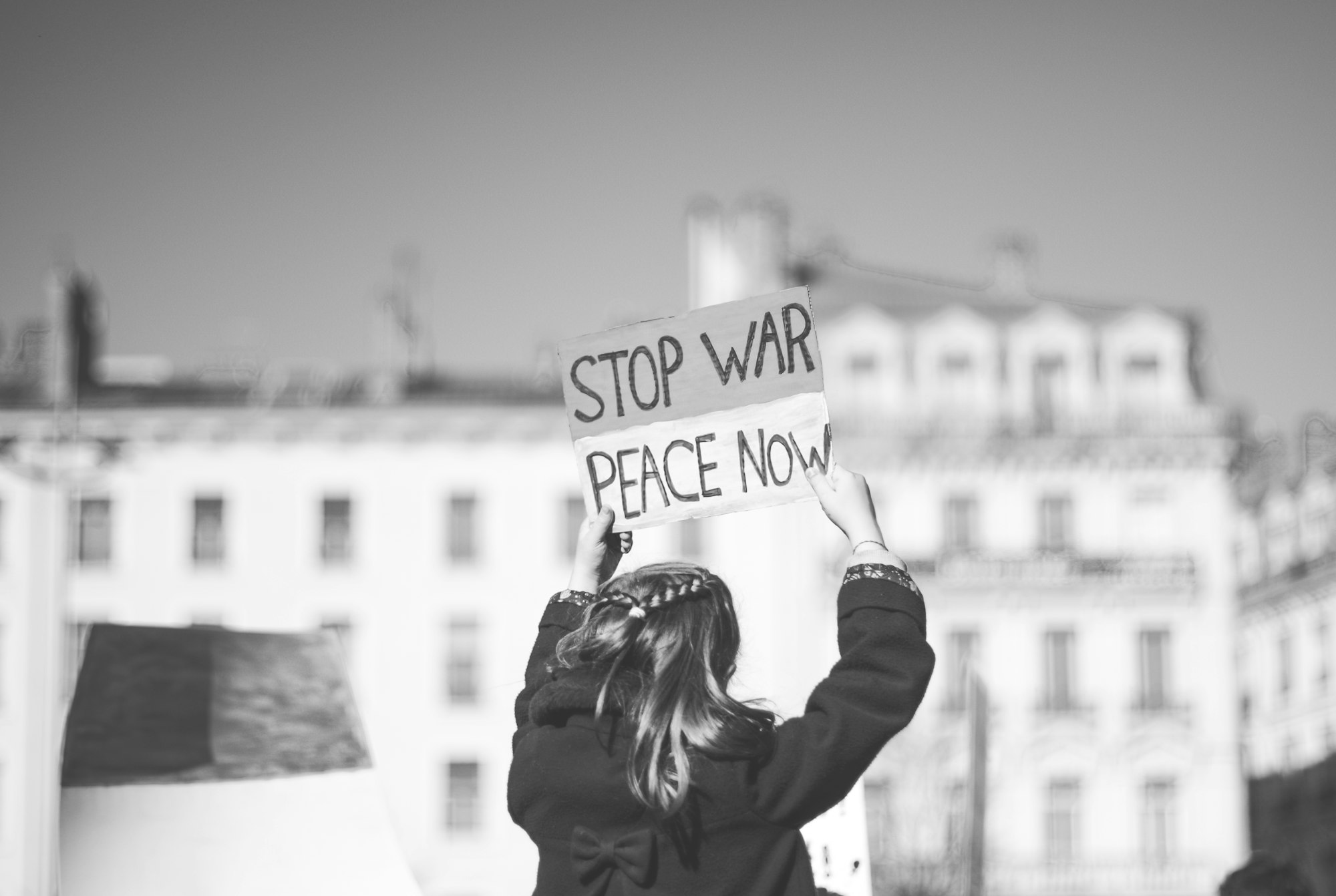By Imi Hills, Second Year, English
The Just War principle is an ethical criterion which aims to evaluate the moral justifiability of engaging in a conflict; the principle states that war is permissible when it has a just cause and the intent to establish peace. War must be a last resort, have democratic legitimacy, and have a proportional and minimal use of force. But should war at all be ‘justifiable’?
Developed by St Augustine and Thomas Aquinas - a philosophical attempt to reconcile Christian ethics with the realities of a ‘fallen world’ - the Just War Principle has gone on to influence the secular development of international humanitarian law and the United Nations Charter.
It has also been central to the justification of contemporary conflicts and policies, such as the NATO intervention in Kosovo, the Gulf War, and the establishment of the UN’s Responsibility to Protect concept (R2P).
However, while appearing philosophically sound, in practice, this theory is weak, overly mitigating, and has legitimised countless wars of conquest and colonisation. Its defining features of “justness” and “proportionality" allow for moral and legal disengagement from human suffering, and are highly subjective, and therefore easily manipulated as a moral cover for conflicts pursued by political and economic interests.
Consequentialism and its consequences have been a disaster for mankind.
— Damien de Pyle (@DamiendePyle) April 21, 2024
Dropping the A-bombs were against the Just War Theory (jus in bello) principle of distinction. It's immoral to deliberately target civilians. https://t.co/FqUBwMDeve
Yet, developed in the 300s - several centuries before the invention of the firearm – the Just War Principle fails to address the complexities of modern warfare. With an increase in unmanned weapons and asymmetric conflict, the theory is overly simplistic and gives insufficient attention to how war is conducted once it is initiated. Crucially, its emphasis on evaluating wars after they have started does not provide effective mechanisms for deterring conflict in the first place, nor for preventing escalation out of ‘proportionality’. Just look at its recent failures: the US war in Afghanistan, the 2003 invasion of Iraq, and the Vietnam War; there was a significant lack of proportionality that caused instability in affected countries and immeasurable quantities of death, damage and destruction.

Everyone knows warfare divides societies along economic and political lines by exacerbating existing inequalities and perpetuating a cycle of violence. The production and use of arms create pollution and resource exploitation, impacting vulnerable communities and ecosystems. The military and weapons industry diverts huge quantities of funds and attention away from humanitarian and social issues, which are at the root of many conflicts. If we were to redirect our focus and funding toward poverty alleviation, reducing inequality, and addressing social injustice, we could effectively advocate for responsible and accountable governance and improved access to education and healthcare. These efforts would go on to stabilise societies, governance systems, and economies, ultimately addressing the underlying causes of violent conflicts.
Ironically, armed conflict directly and overtly violates Christian values. From ‘thou shalt not kill’ to Jesus’s ‘love thy neighbour’ to the principle of stewardship, it is impossible to pretend murder and the destruction of the natural world is justifiable through religion. The Just War theory is arguably the most peace-aspiring and therefore, ‘Christian’ philosophy to war, but really, Christians should be rejecting warfare altogether.

Additionally, we should seek to believe that all people are equal and precious, and therefore work towards non-violent solutions to conflicts through discernment, dialogue, mediation and diplomacy. We should advocate for economic systems that prioritise human welfare, social justice and sustainable development rather than industries that profit from violence. Campaigning for disarmament, the non-proliferation of weapons, and the redirection of resources toward peaceful and humanitarian purposes is living the Christian ethos in the world.
Despite, the Just War principle being theorised and popularised by Christians, conflict and religiosity are, in fact, natural opposites. This principle was developed to justify the moral and ethical implications of armed conflict but was born out of a fearful reluctance to pursue more ambitious yet entirely feasible diplomatic approaches. It is therefore essential for individuals and societies, including Christians, to reflect on whether they value the sanctity of life, and if so, to recognise that there are peaceful and just alternatives for addressing conflict if only we are willing to proactively seek them.
Feature Image: Kevin Schmid / Unsplash









